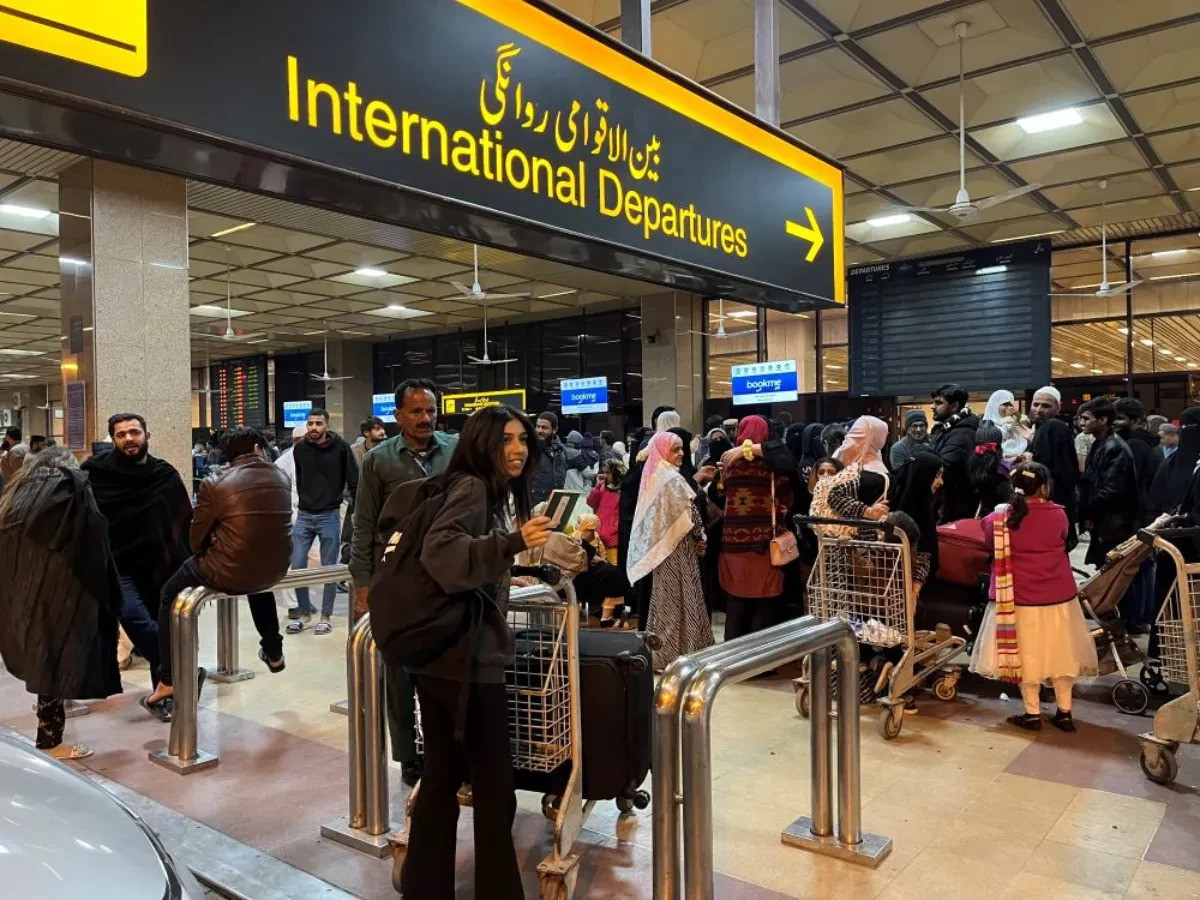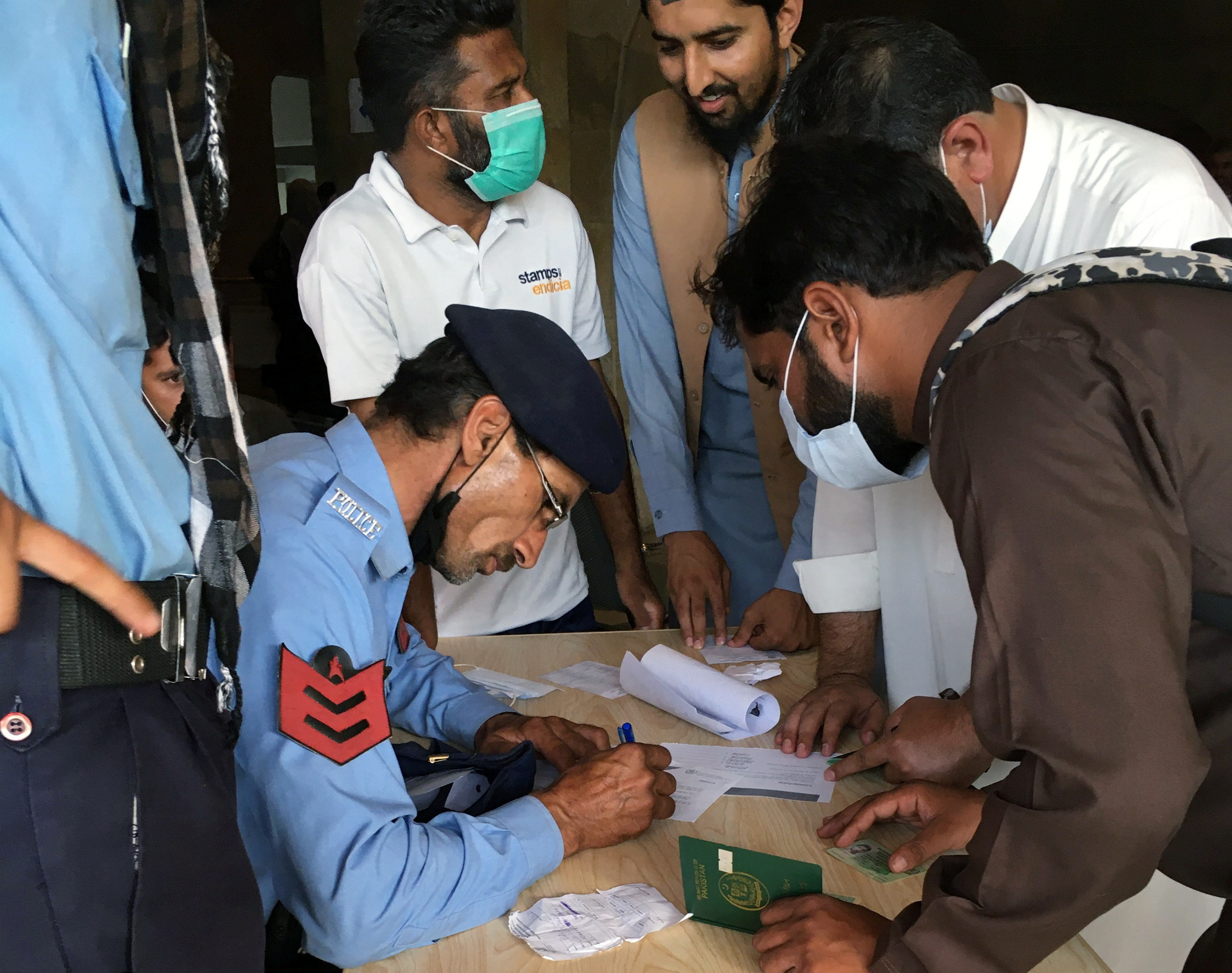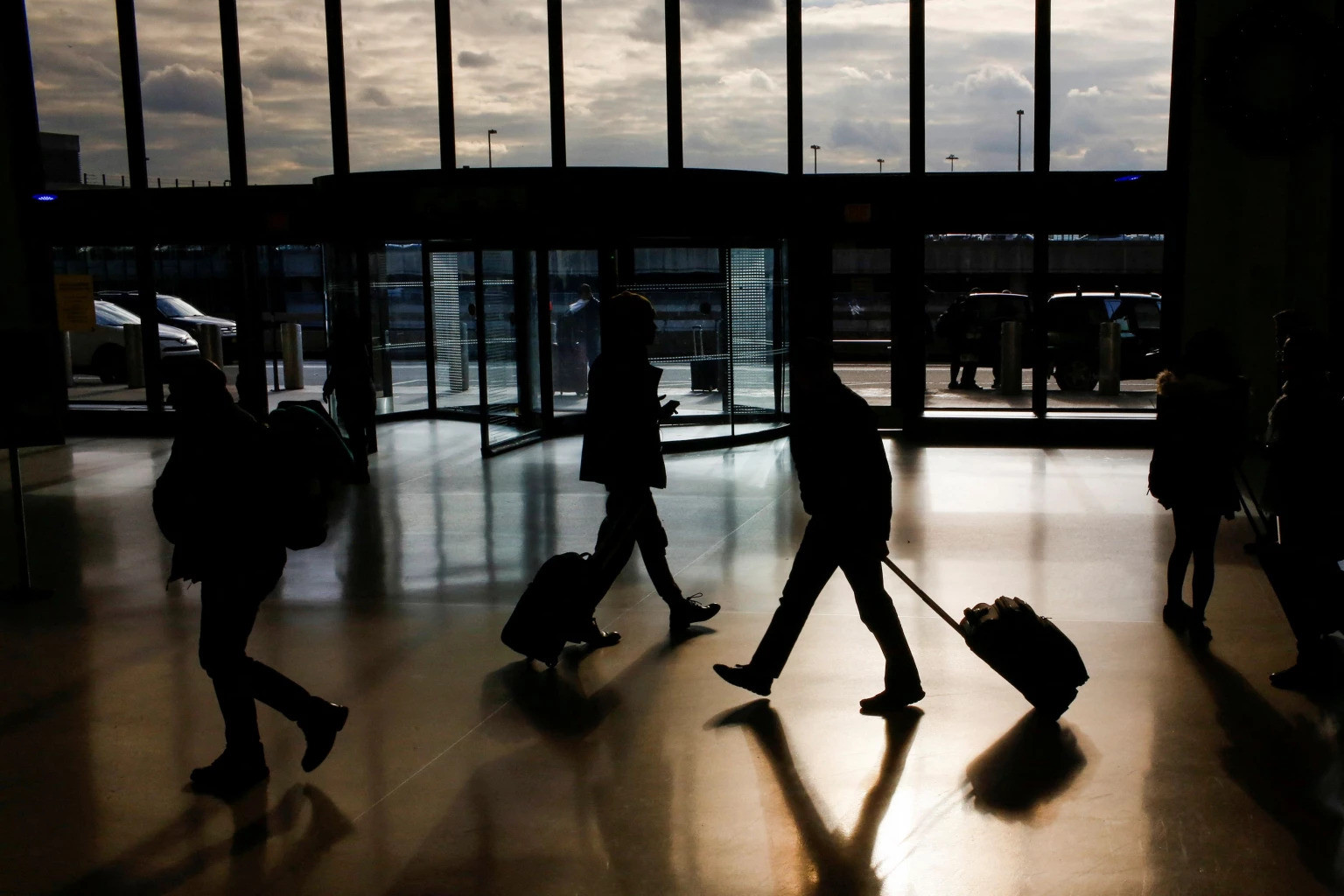Pakistan’s brain drain issue is not new and for decades, we have lost the country’s brightest, most talented and experienced people to the US, Canada, Britain, and Australia. Often people with advanced degrees find it difficult to land positions that suit their skill sets and pay them well, so they opt to go abroad where they find lucrative opportunities and better living conditions.
In an increase from the pre-pandemic numbers of 625,876 in 2019 and 382,439 the year before, more than 800,000 Pakistanis departed the 220 million-nation last year for employment, according to the regulatory and oversight authority of the Bureau of Immigration and Overseas Employment. Higher numbers depart for schooling or other reasons and never return.
The official documents from the Bureau of Emigrants show alarming numbers. More than 92,000 graduates, 350,000 trained workers, and the same number of untrained labourers were among those who departed the country last year. Among the educated youth who were emigrating were 5,534 engineers, 18,000 associate electrical engineers, 2,500 physicians, 2,000 computer experts, 6,500 accountants, 2,600 agricultural experts, over 900 instructors, 12,000 computer operators, 1,600 nurses, and 21,517 technicians. Some 213,000 drivers were also among the unskilled employees who left the country.
It is believed that the actual number of people leaving is much larger, since the data only covers work visas and does not represent people travelling on permanent residency, student and family settlement visas. According to immigration experts, middle-aged people are trying to move out of the country as well to take their experience abroad.
In the backdrop of the outflux is burgeoning corruption, street crime and the $1.1 billion bailout tranche from the International Monetary Fund (IMF) stalled due to disagreements over a programme assessment that was supposed to be finished in November last year. Consequently, Pakistan is battling to allay default fears in both domestic and global markets.

Go Dubai
Pakistanis may not have many options given the resources and post-pandemic economy, but the easiest and quickest way out is to go to the United Arab Emirates (UAE) and start a new life. Since Dubai is often seen as a city that offers a modern lifestyle, a high standard of living, state-of-the-art infrastructure, and a diverse and multicultural environment, it specifically attracts more and more people in terms of settling and job market prospects. Add to that its tax-free income policy, it gets greener. Several factors such as the abundance of employment possibilities, a sizeable Pakistani expat population, and close cultural ties between the two nations have made Dubai a second home for many Pakistanis.
Thirty-two year old *Mohammed Abdullah, a communication and PR specialist presently working in Dubai left Pakistan last year in December. “I always believed that Pakistan is home and the best place to live, and that I would never leave my country,” he says. “When I got married and for the first time ever, I stepped out of the country with my wife for a vacation to Turkey, I realised that we live in a bubble. There is more to life, it is a huge world out there and people living in Pakistan are deprived of their basic rights such as security or safety and not much is being done about that.”
This was a turning point in Abdullah’s life. “When I travelled in a subway in Turkey, I saw citizens’ rights up on a wall in a station for people to read and know,” he says. “While in my own country, I don’t even know what my rights are. I realised that there is no future in Pakistan for me and my family. I have a son and I don’t want him to suffer fear and anxiety like me and most of my friends ― the constant fear of losing your job or struggling for basic facilities ― so I decided that I should move away for stability and a better future. I have been working here with the idea to save money and be able to make things work in Pakistan, because the amount you can save from here in rupees is not even close to an average person’s monthly salary back home. One cannot own a house with my salary in Pakistan, but working Dubai and saving money here has opened many doors for me.”
Many Pakistanis opt for Dubai because of its proximity to their homeland. “It is not too far, and the majority of Asians around creates a homely vibe compared to Australia or Canada where there is also a language barrier,” explains Abdullah. “In Dubai every other person speaks Urdu and you don’t feel homesick.”
Let’s do business
Sualeh Ahmed decided to move to Dubai in 2021, to start his own business from scratch. “After the pandemic, my father decided to rent out his factory where I was also running my business,” he explains. “I had to close my business and was left with nothing. For several months, I tried to find a decent job to make ends meet, but after trying my luck at several places, I got appointed at a call centre. It was then that I realised that moving away and setting up a business is the best I could do because in Pakistan, I could not see any growth. I had even applied for mediocre jobs and my wife started content writing to support the family.”
For Ahmed’s family, it was rough as people in Pakistan were getting laid off and good opportunities were far and few. “I had no plans to find employment in Dubai, because I wanted to use my contacts and set up an import-export business as most of my clients are from around Egypt,” says the 30-year-old businessman, who had left his wife and daughter behind to set his business up in Dubai.

Not a piece of cake
Moving to Dubai and settling there is not as easy as it might seem. Abdullah had work visa, but in Ahmed’s case, the scenario was different as he had to purchase a work-visa from a company. “They issued me an invitation letter so I could get a two-year work visa/permit,” says Ahmed. “I also had to manage my living expenses, so I retained my call centre job as it could be done remotely. The salary helped me to get settled and manage home expenses.”
Zohaib Saeed, a writer went to Dubai as his wife’s dependent. “She has a job here, and I joined her after resigning from my well-paid job in Karachi,” he says, although he plans to return to Pakistan by the end of this year if he doesn’t find employment by then. “I have applied for at least 200 vacancies but in vain.”
The benefits of living in Dubai are totally dependent on the employment situation. “The situation differs from person to person,” says Saeed who has landed few internship opportunities, but is still looking for a permanent job. “The prospects of jobs also change from emirate to emirate and the kind of visa you have. Since the employers are mostly Indians, they prefer to hire Indians, but obviously if you have more experience or know your skill, you might get lucky. English is widely spoken and used as a business language, so proficiency in English is an advantage, while knowing Arabic is also important in some fields.”
A challenging job market
The job market in Dubai can fluctuate with the overall economic conditions and demand in different industries. During economic downturns or recessionary periods, it may become more challenging, while during periods of economic growth and expansion, more job opportunities may be available. Employers typically sponsor employees for work visas and residency permits, which means that having a job offer from a reputable employer is often a pre-requisite for obtaining a work visa.
“Ideally one should apply for jobs from Pakistan and only leave if they have something in hand,” says Abdullah. “One can apply for 50 jobs a day and there is no harm in it. However, some people come to Dubai on a two-year visa and then search for employment here.”
Despite several challenges, many people successfully find employment and build fulfilling careers in Dubai by engaging in thorough research, networking, professional assistance, and being proactive in job search.

Average cost of living
To run an average household in Dubai, one needs a decent amount of money and many expats in Dubai have to send an amount back to their parents or spouse and children in Pakistan. “One needs at least 15000 AED to lead a comfortable life with accommodation, grocery, utilities, car, fuel, and at least 2000 AED to send back home,” says Ahmed.
The average cost of living varies, one can get a 1BHK in a decent neighbourhood from 3500-5000 AED, with parking facilities, parks, swimming pool, electricity and gas included. “The ideal situation should be to save 2000 AED, because that is more than an average salary in Pakistan,” says Abdullah.
Beyond Dubai
Many people are aiming to migrate to Australia and Canada after staying in UAE and saving money for the immigration process. “I am a software engineer and moved to Abu Dhabi earlier this year because what I earned in Pakistan is not even close to what I am able to send to my parents now,” says Usman Shafqat, who works in an IT firm. Despite having a stable job in Karachi in one of the most demanded professions in the country currently, he left after realising that no matter how much he earned, security and a quality standard of life cannot be achieved. “When I am working hard and paying taxes, I feel that I deserve better living conditions,” Shafqat adds.
Abbas Alam, a software engineer with 10 years’ experience agrees with Shafqat. Alam is moving to Dubai to earn money that will enable him to move to Australia. “I have my UAE residency, but I am in the process of immigration to Australia,” he says. “Obviously it requires money, and earning in PKR does not help. I am not ungrateful, but after working hard in an occupation which is in high demand and highly paid across the globe, in Pakistan I am just able to make the ends meet while the law and order situation is another hue and cry. Any day I could get robbed of my phone, car, and other valuables at my doorstep, so what is the point in living in Pakistan?”
Last year, at least four times the side mirrors of Alam’s car were stolen from the front of his house, so he hired a private guard for the street. “Is that the solution after paying heavy taxes?” he asks. “We are constantly worried if we will reach home alive.”
With the country is in shambles and every other educated person ready to leave, the shortage of skilled workers will be a matter of concern in the near future. “While doing my ACCA, I set up a small chai dhaba with my friends to to support my expenses,” says Obaid Ameen, who is leaving for Australia next month and has no plans to return. “My elder brother who has settled in Australia where he completed his mechanical engineering degree advised me to also apply for a student visa for Australia as the future seems pretty bleak here.”
Earlier, Ameen’s elder brother left for Australia for his Master’s degree, after realising that he will never get a job here that could pay him well, nor would the system provide him security or better future prospects for his children.
“I was the highest percentage holder and most intelligent and in my family,” says Moeed Ali who has also left Pakistan for better prospects. “I got into NED University in the top department in the first round, but after graduating I was jobless for two years and did tuitions to manage my expenses. It was then that I decided to leave for Canada.”
Ali also points out that stories like his are quite common, but people are also returning to their home country as they were unable find a good job abroad. “One of my friends was applying for jobs right, left, and centre, but he couldn’t get one because countries such as Canada, Australia, or New Zealand have several pathways for immigration, but they are also very particular and selective about granting visa,” he explains, adding that the best way is to keep looking for work either here or abroad, even though the present situation in Pakistan is dicey and the living standard abroad is quite tempting.
When the country’s best take away with them their advanced education, skills, ideas and experience, the nation’s economy and the overall growth and advancement in terms of competing with the international market suffers. As skilled and experienced teachers, doctors and nurses leave, the education and healthcare systems suffer. Left behind is disillusionment, hopelessness, a lack of motivation and initiative that further fuels underdevelopment and brain drain.
Pakistan needs to address the issue by emulating countries such as India, China, South Korea, Japan, and Ireland where policies and programmes have been put in place to attract, motivate and retain the country’s talent and potential. But this can only be done as long as there is political stability and a buoyant economy.
*Name changed to protect privacy
